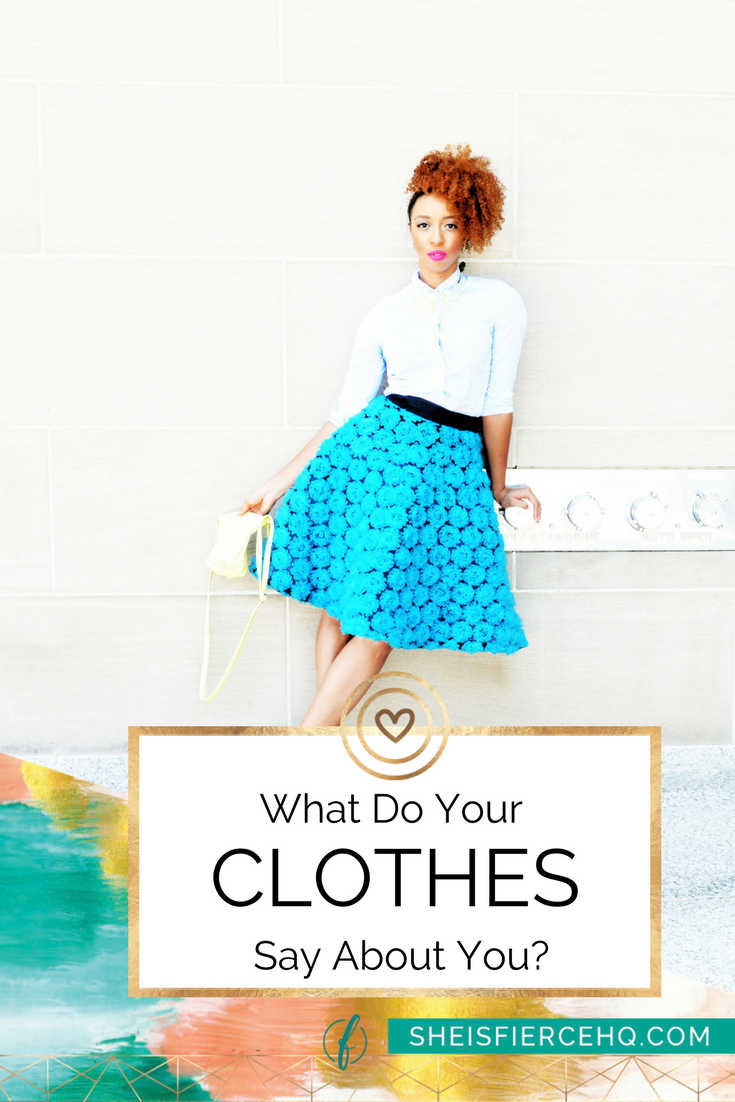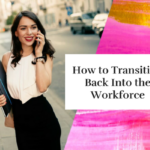What Do Your Clothes Say About You?
Nothing? Actually, they say a lot…
I got into the fashion industry due to a product idea. I simply wanted to create an apparel piece that kept my shirt from coming up while I was practicing yoga. I knew I wanted my company to do good beyond the products we offered and empower the community we built, but that seemed rather standard in my mind. Then I started to realize just how few clothing companies actually try to empower the women who wear their clothes. It was almost the opposite in a lot of cases.
Not all clothing is created equally. Nor will all clothing represent you in the way you desire to be represented. The way you spend your money and the items you put on your body are some of the most visible forms of showing your values. Since I started Noya, I’m happy to say new trends are arising across the fashion industry that make it possible for you to show your voice and values and feel empowered through the clothes you wear.
Empowering Trends to Look for in the Fashion Industry
Just like people, brands have the opportunity to channel their voice. From the design, to the production process, to the partnerships they forge, it all tells a story. Considering the following when making your next clothing purchase.
Demand Brands that are Body Positive
I’m thrilled that more and more positive messaging is popping up through apparel. Unfortunately, we still have models who are deemed “too fat” if they have a half pound more than the unreasonable industry standard. But not all brands are strictly promoting skinny as the exclusive way to be beautiful. Muscles are coming into style! So are reasonably sized hips and thighs! Although this messaging may seem more subtle than, say, a brand’s tagline or written messages on their marketing and clothing, it still speaks loudly to men and women alike.
If you walk into a shop and immediately feel like you need to lose 10 pounds, get the hell outta there! I say, the more you’re able to relate to the model showing off your potential new outfit, the better. At the company I started we don’t even have numbered sizing. Noya’s apparel is proudly made by women for women and we advocate for positive body image through a unique sizing system.
There are tons of ways brands are trying to speak up about the issue of body shaming. But it’s a tough trail to blaze. Show your support by supporting them.
Look for Ethical
Like a lot of factory work, when you start digging under the surface of where items are made, it can get ugly fast. Almost every article of clothing you wear is made by human beings—and working conditions vary significantly. There are issues with this across the board, but the most famous incident happened only a few years ago when a Bangladeshi factory collapsed and killed over 1,000 workers inside. The conditions of the building had been unsafe since its construction, but due to high-pressure deadlines and low-priced promises the owners of the factory pushed forward. There are thousands of other issues that happen on a daily basis that are never publicly acknowledged. From child labor, to abuse in the workplace (the majority of sewers are women), to working hours of 12-14 hours per day, 7 days a week, to wages not high enough to make a basic living. Human rights are massively overlooked because transparency is almost unheard of in the fashion industry. The issues likely aren’t going away until regulations are in place. These regulations will likely mean higher prices for consumers and transparency for retailers. Ask the brands that you shop, who made my clothes? If they aren’t willing to give you a full description, you may want to start shopping somewhere else.
Wear Clothes that Speak Your Truth
Aside from the logo on your clothes, you have other ways to represent your values through what you wear. Have you gone to any women’s marches? Even high-fashion designers are jumping on the opportunity for a less-subtle form of messaging. I love that graphic tanks and tees are trending again. Growing up I always thought it was weird to see large statements across someone’s shirt (or really cool depending on who and how someone was wearing a particular message – you know, some people can just pull that off!). In my wardrobe, printed writing on clothes was almost exclusively reserved for band shirts from concerts and athletic shirts from tournaments or events. Nowadays wearing a shirt that lets others know a little more about you is on the rise. Want to tell the world how much you love cats? There’s a shirt for that. How about a shirt that ironically calls out people who don’t believe in Global Warming? Yep, there’s one for that too. Whatever it may be, you have choices. Wear them proudly.
Choose Brands as Green as You Are
Trying to be more green? Eco-friendly isn’t always easy to find in the clothing available to purchase, but there are some easy ways to know that you are choosing the best option in front of you. No matter what your political views are on shopping USA made, if you live in the US, USA made is often a greener (and more ethical) choice. There are tons of resources used to ship items across the globe. For instance, a typical piece at Noya will be sampled at least three times before we move to the next step of production, the sizing stage. After sizing is sorted we move to a full production run. Each stage requires fabrics, patterns, and other materials shipped. There are a minimum of 16 shipments completed for each item before the product ever arrives on a consumer’s doorstep. Imagine the difference between shipping from across the globe to shipping within the United States (or even better, within a particular state or city). It adds up. Fast.
Other (usually) greener choices include garments made from materials like: bamboo, organic cotton, modal, tencel, wool, silk, linen, hemp and recycled materials.
Just Try One
I own a clothing company and I still feel how daunting it is to hold myself to always making the ethical, empowering, eco-friendly, value-based fashion choice. There’s a lot of research that would need to go into each purchase decision. The good news is, you’re already way ahead of the game by knowing that these choices exist! Just like any change that you want to stick, you have to introduce it into your daily life a little dose at a time. Maybe next time you shop you start becoming aware of tags. Then start to notice imagery and messaging. Before you know it, you’ll start to identify the brands that empower you. Those are the brands you want in your closet.
 Christine Reppa is founder of Noya, activewear made for women by women. She is an environmentalist, women’s rights activist, yogi, and adventurer. You can read more of her musings at the blog on her website noyayoga.com.
Christine Reppa is founder of Noya, activewear made for women by women. She is an environmentalist, women’s rights activist, yogi, and adventurer. You can read more of her musings at the blog on her website noyayoga.com.





Be the first to comment